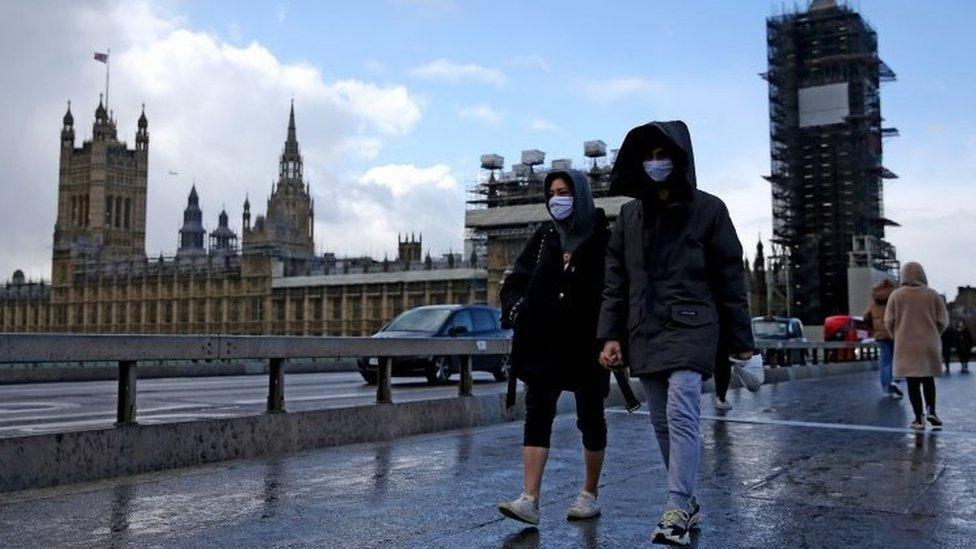Review: Virtual PMQs sort of worked
- Published
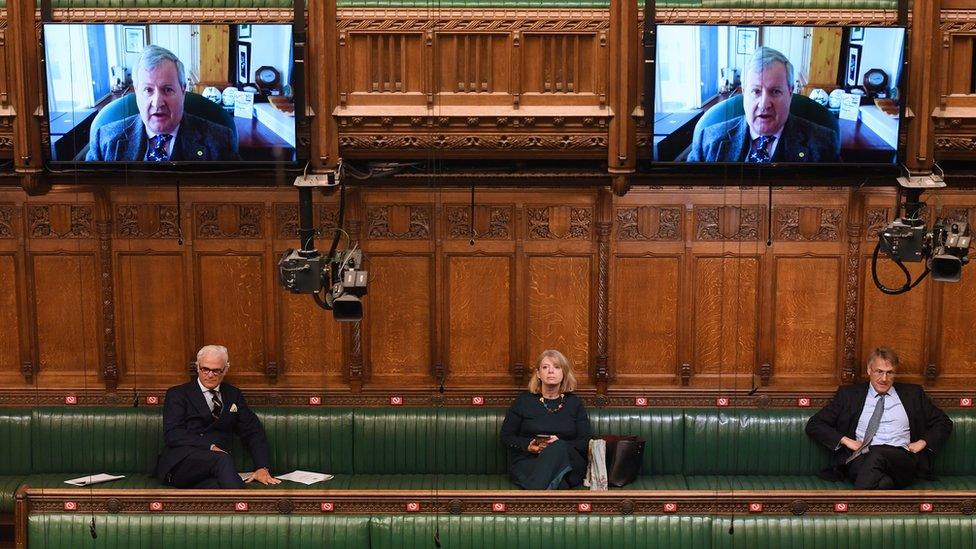
The first Prime Minister's Questions over Zoom saw some technical glitches
It sort of worked.
The new, virtual, House of Commons opened an unprecedented day with the first-ever remote Welsh Questions - with Secretary of State Simon Hart answering from home.
Sound quality was occasionally ropey, questions had occasionally to be guessed at, with Mr Hart revealing previously unsuspected lip-reading skills.
The pace was deliberately leisurely, with Commons Speaker Sir Lindsay Hoyle spinning out the way he called MPs to speak, to allow the technical crews behind the scenes to get the right face up on the screens.
And the close-ups from the home cameras gave a new dimension.
We could see the play of emotions across Mr Hart's face, full screen. Every twitch or semi-grimace was there. You don't normally see the tensions and emotions of parliamentary questions displayed so raw.
By the time PMQs began, the routine was established… but it was an unfamiliar cast of characters, with First Secretary Dominic Raab deputising for his convalescing boss, and Sir Keir Starmer making his debut as the Leader of the Opposition.
Oh to have seen their faces so close - but both were appearing in the old-fashioned way - in the flesh, in the chamber.
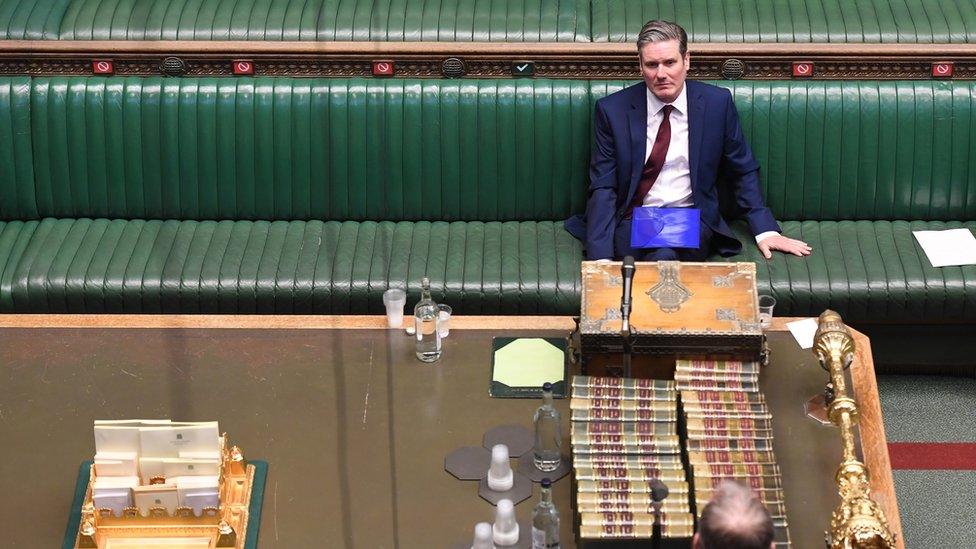
Keir Starmer made his debut as Leader of the Opposition
In normal times, the Leader of the Opposition does not deign to debate anyone other than the prime minister, but Sir Keir, wisely, was not standing on ceremony, and so he made his debut in his new role in circumstances he could hardly have imagined when he began his leadership bid.
In a ritual as time honoured as the Speaker's daily procession with the Mace, he promised "constructive opposition" although, mercifully, he didn't deploy the usual soundbite about "an end to Punch and Judy politics".
Not politics as usual
Instead, he dropped into prosecuting counsel mode, putting Dominic Raab through a gruelling inquisition which ran through the numbers being tested, the supply of PPE and the death rate among NHS staff and care workers.
Woundingly, when the first secretary could not supply a figure for the care workers, Sir Keir promised he would ask every week, until he could. All this with only the barest flash of partisan steel.
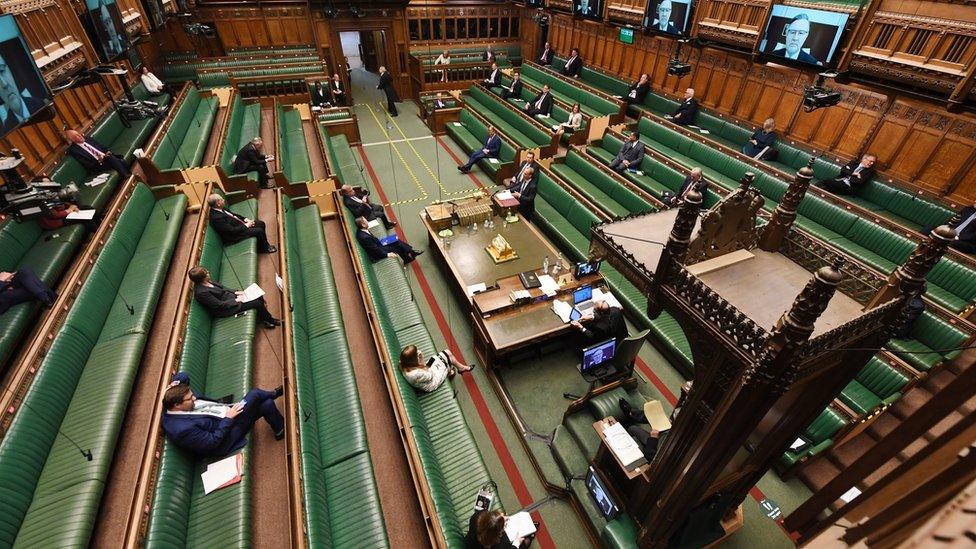
MPs observed social distancing in the Commons chamber
This was clearly not the moment for a full-on party political slugfest. It was all too horribly serious for politics as usual, and Mr Raab responded with detailed answers where he could, highlighting progress and pointing out that the government was following the advice of the chief medical officer - did Sir Keir know better?
On and on the extended 45 minutes PMQs rolled.
Former Scottish Secretary David Mundell was unable to connect, the Speaker announced, moving on to the SNP's Westminster leader, Ian Blackford, with signed footballs positioned in shot behind him, asking about moving to a universal basic income system.
Ian Blackford was the first MP to ask a question virtually at PMQs
PMQs frequent flyer Peter Bone lambasted the banks for the overdraft rates they were charging, although his final words were cut off.
Labour's Stephen Kinnock appeared to be standing, rather than sitting before his computer, as he asked about support for the Port Talbot steelworks.
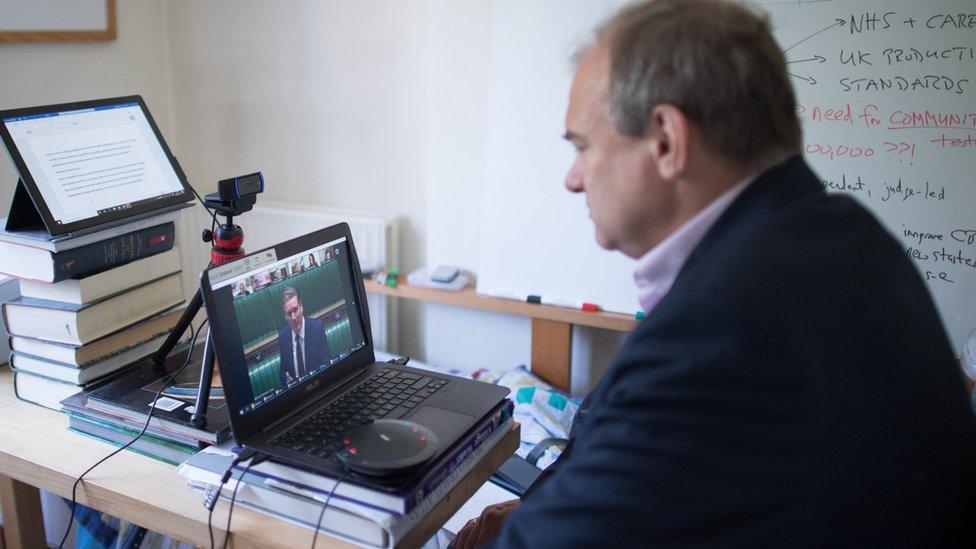
Sir Ed Davey was among MPs asking PMQs questions remotely.
Lib Dem acting leader Sir Ed Davey highlighted that an NHS consultant who died at his local hospital was from Sri Lanka.
Normal heckling absent
He let that fact hang without comment, and then called for an independent judge-led inquiry into the handling of the pandemic. Mr Raab declined to promise that, saying his focus was on the crisis now.
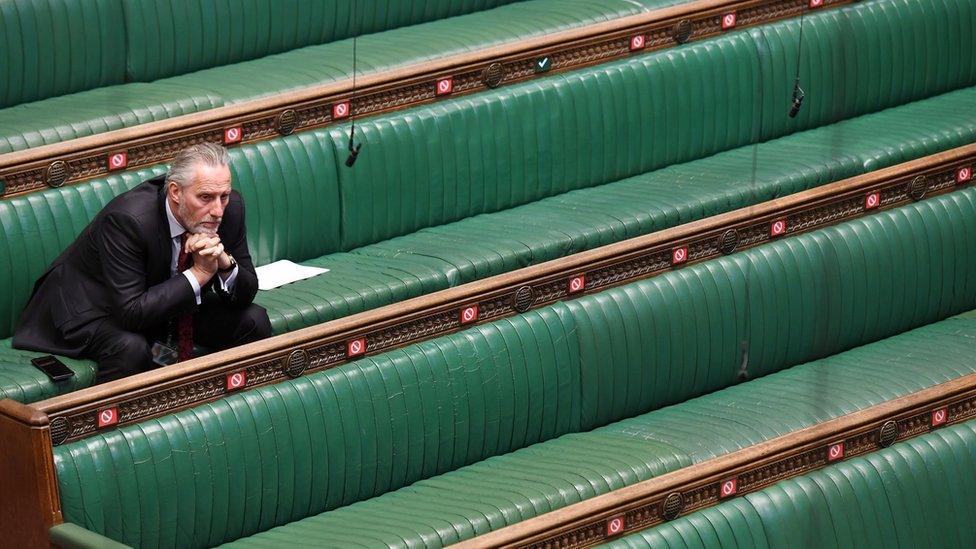
It was all carefully non-partisan and extremely serious, and there were none of the jibes, the roaring and the heckling of PMQs in normal times.
But then again, it is doubtful that the systems underpinning the virtual parliament could allow roaring to manifest itself, if MPs ever decided to try.
- Published2 April 2020
